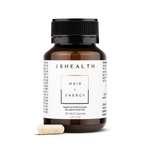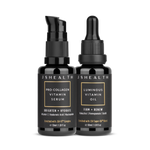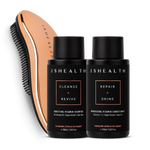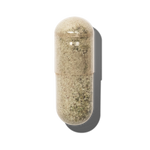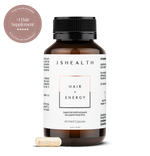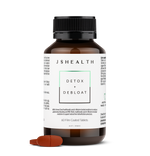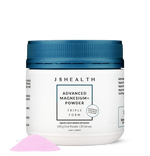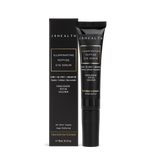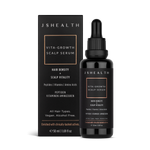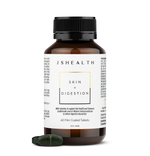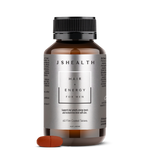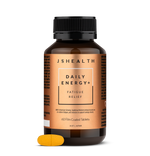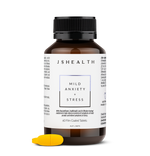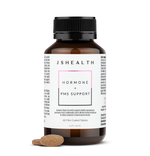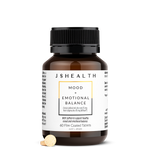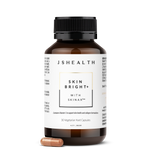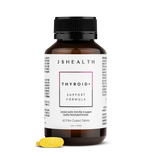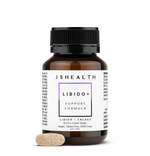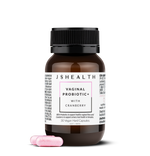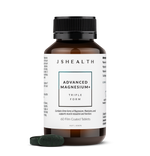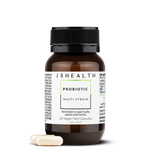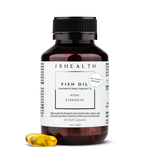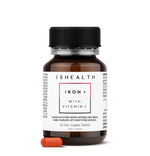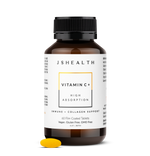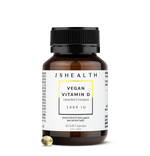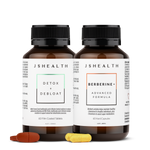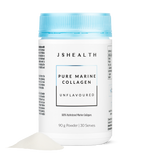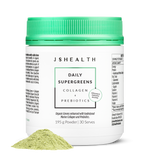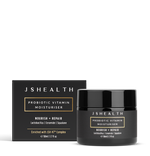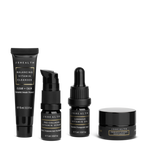How Much Fish Oil Should Women Take Daily?
As we journey toward achieving our wellness goals, it's no surprise that many of us have found ourselves navigating the vast world of dietary supplements. From multivitamins to probiotics, the options seem endless.
A powerhouse supplement that has been making waves in recent years is fish oil. Why has fish oil caught the attention of so many health-conscious individuals? Let’s dive in and find out!
What Is Fish Oil and Why Is It Important?
To understand why fish oil has grown in popularity, it's important to first learn what it is. Fish oil is rich in omega-3 fatty acids, essential fats our bodies can't produce on their own. Two types of omega-3 fatty acids, eicosapentaenoic acid (EPA) and docosahexaenoic acid (DHA), are particularly beneficial and form the core components of fish oil.
EPA and DHA play crucial roles in maintaining our overall health. These fatty acids are powerful, from supporting heart health to maintaining optimal brain function. But their benefits don't stop there. Fish oil has also been linked with a range of other health advantages, making it a much-loved supplement in the world of wellness.
One of the significant benefits of fish oil is its potential support for heart health. The omega-3 fatty acids in fish oil may help manage blood pressure, maintain healthy triglyceride levels and support cardiovascular health. In a world where heart disease remains a leading cause of death, these potential benefits are particularly compelling.
Another advantage of fish oil relates to mental health. Our brain is composed of nearly 60 percent fat, much of which is omega-3 fatty acids. Therefore, these essential fats are necessary for supporting normal brain function.
Fish oil is also believed to support eye health, healthy skin, pregnancy, soothe symptoms of metabolic syndrome and tension and even support your sleep. With all these potential benefits, it's no wonder that fish oil supplements are swimming their way into the daily routines of many!
How Does Fish Oil Support Women's Health?
Fish oil offers numerous health benefits that are especially important for women.
One of the areas where fish oil can play the most impactful role is in heart health. As mentioned earlier, heart disease is the leading cause of death for women in many countries, making the heart-supporting benefits of fish oil incredibly crucial.
In addition to heart health, fish oil can also assist in maintaining hormonal balance. The EPA and DHA in fish oil play a vital role in the production of hormones that regulate tension and the contraction/relaxation of artery walls. This can be especially beneficial for women who experience menstrual pain, as these tension-soothing properties may help manage discomfort.
Fish oil may also support bone health, an important consideration for women as they age and their risk of osteoporosis increases. Omega-3 fatty acids can maintain bone strength by supporting the amount of calcium in the bones.
Pregnant women may also benefit from fish oil. Omega-3 fatty acids support the neurological and early visual development of the baby. Moreover, supplementing with fish oil during pregnancy can also support the mother's mental health after the birth.
Finally, for women navigating the special period of menopause, fish oil may offer some relief. Emerging research suggests that omega-3 fatty acids may help manage the feelings of hot flashes and discomfort.
What Is the Optimal Daily Intake of Fish Oil for Women?
As with any supplement, the optimal daily intake of fish oil can vary based on individual health conditions and goals. However, many health organizations agree that a good starting point for adults is 250-500 mg of combined EPA and DHA daily.
For women seeking specific health outcomes, this dosage may vary. For instance, for heart health, some studies suggest an intake of about one gram of EPA and DHA per day. Pregnant and breastfeeding women might require higher doses to support the development of the baby and their own nutritional needs.
But remember, more isn't always better. Excessive fish oil intake can lead to side effects like nausea, diarrhea and an increased risk of bleeding. It's always best to consult a healthcare professional before starting or altering any supplement regimen.
Ultimately, your overall lifestyle is the most important thing to consider when taking fish oil or any supplement. Fish oil can complement a diet rich in whole foods and an active lifestyle, but it isn't a magic solution on its own.
Each of us has unique health needs and goals, and what works best for one might not always work for another. It's always a good idea to consult a dietitian or a trusted health professional to determine what's best for you.
How Can You Incorporate More Fish Oil Into a Daily Diet?
Incorporating more fish oil into your daily diet can be achieved in a couple of ways. One of the most direct and effective methods is through consuming fatty fish. Fish like salmon, mackerel, tuna and sardines are very high in omega-3 fatty acids.
In fact, the World Health Organization (WHO) recommends eating one to two portions of fish per week. That’s all it takes to get enough EPA and DHA to maintain overall health.
Beyond adding more fish to your menu, certain types of nuts and seeds, such as chia seeds and walnuts, also contain omega-3 fatty acids. While these foods provide a different type of omega-3 (ALA) that the body needs to convert to EPA and DHA, they're still a valuable part of a balanced diet.
However, for those who don't regularly eat fish or are looking for a more concentrated source of omega-3, dietary supplements can be a practical and beneficial choice. These can be particularly helpful for vegetarians, vegans, or people with specific dietary restrictions who may find it challenging to meet their omega-3 needs through food alone.
Remember to check the labels when choosing a supplement. The amount of EPA and DHA can vary between products, so you'll want to choose one that aligns with your nutritional needs and goals. For example, each capsule of the JSHealth Fish Oil contains the equivalent of 540 mg EPA and 360 mg DHA.
Are There Any Side Effects Women Should Be Aware of When Taking Fish Oil?
While fish oil is generally well-tolerated, some women may experience side effects, particularly when taken in large amounts. These can include nausea, diarrhea or a fishy aftertaste. In rare cases, fish oil can thin the blood, which may increase the risk of bleeding, particularly if you're already taking blood-thinning medication.
Furthermore, fish oil supplements can interact with certain medications, including blood pressure medications, birth control pills and some types of antidepressants. That's why it's crucial to consult a healthcare provider before adding fish oil to your supplement routine, especially if you're currently taking medication or managing a chronic health condition.
Conclusion: Navigating Your Fish Oil Journey
Understanding the role of fish oil in supporting women's health is just the start of your journey toward optimal wellbeing. From heart health to hormonal balance, fish oil can significantly add to your wellness routine.
It's important to remember that while fish oil has many potential benefits, it's not a silver bullet. It works best when it's part of a balanced diet and a healthy lifestyle.
And since each woman's health needs and goals are unique, the optimal daily intake of fish oil can vary. Always consult a healthcare provider to determine the appropriate daily intake of fish oil based on your individual needs and circumstances.
At JSHealth, we're here to support you on your health journey and are always committed to caring for you with the highest quality supplements, designed with your health and wellness in mind.
Sources:
Eicosapentaenoic Acid (EPA) and Docosahexaenoic Acid (DHA) | NCBI Bookshelf
Omega-3 Fatty Acids, Fish Oil, and Heart Health | Penn Medicine
Essential Fatty Acids and Human Brain | NCBI Bookshelf
Women and Omega-3 Fatty Acids | NCBI Bookshelf
Osteoporosis: What You Need to Know as You Age | Johns Hopkins Medicine
Protective Effects of Omega-3 Fatty Acids in Cancer-Related Complications | PMC
Fish Oil Pills Aren't Doing What You Think They're Doing | Cleveland Clinic
Omega-3 in Fish: How Eating Fish Helps Your Heart | Mayo Clinic
Fish: Friend or Foe? | The Nutrition Source | Harvard T.H. Chan School of Public Health
